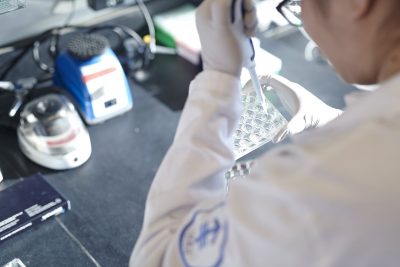- Researchers from several academic institutions in the U.S. conducted a prospective cohort study on the impact of physical activity on cancer. It demonstrated that physical inactivity, or a greater sedentary lifestyle, was associated with higher (up to 82%) cancer mortality. At the same time, a moderate intensity exercise reduced the risk of cancer death by 31%. The study was published in Lancet Oncology.
- Colitis is a known digestive tract side effect of immunotherapy in cancer treatment. A new study by U.S. researchers established that vitamin D supplementation before starting cancer treatment reduced the risk of developing colitis in patients treated with immune checkpoint inhibitors by 65%. This study was published in Cancer.
- A novel formulation of an existing drug abiraterone acetate used for prostate cancer (currently available as a commercial product Zytiga) can make a significant impact on the quality of life of patients treated with it. Australian scientists enhanced the drug’s properties “by using oils to mimic pharmaceutical food effects,” leading to fewer side effects and smaller doses needed for treatment. This preclinical study was published in the International Journal of Pharmaceuticals.
- Scientists from Europe established that “targeting cancer’s ability to process fat” by using a combination of a new class of drugs called cPLA2 inhibitors and a fat free diet makes cancers less reliant on fat for their growth and spread. This animal study was published in Cell.
Category Archives: In the News
ASCO 2020 Highlights
The American Society of Clinical Oncology (ASCO) conference met virtually at the end of May, a growing trend with medical and scientific conference organizers to prevent the spread of COVID-19.
In a Nature News article, participants in a number of online conferences discussed their experiences with these virtual gatherings. MSK graduate student Emily Costa commented that the online format made asking questions less intimidating, especially for new researchers, and led to higher quality engagement. Many believe that even after the pandemic ends, conferences will retain more online components.
 The online-only format of ASCO’s 2020 conference did not hinder the presentation of advances in cancer research. Here are some highlights from MSK researchers, from MSK’s News & Information team:
The online-only format of ASCO’s 2020 conference did not hinder the presentation of advances in cancer research. Here are some highlights from MSK researchers, from MSK’s News & Information team:
- ASCO 2020: First National-Scale Study on the Impact of Medicaid Expansion on Cancer Mortality Rates Highlighted in Press Program
- ASCO 2020: Advances in the Treatment of Small-Cell Lung Cancer
- ASCO 2020: First Comprehensive Assessment Highlights the Importance of Germline Analysis in Advanced-Cancer Patients
- ASCO 2020: Using Acupuncture to Treat Pain in Cancer Survivors
- ASCO 2020: Targeted Treatment Shows Promise in Non-Small Cell Lung Cancer
Research in Genetics to Help with Cancer Treatment Decisions

A new study by researchers from Memorial Sloan Kettering Cancer Center found that patients with metastatic pancreatic cancer who had germline or somatic mutations in DNA repair genes responded better to platinum-based chemotherapy compared to patients without those mutations. The study was published in Clinical Cancer Research. Dr. O’Reilly, senior author on the study, pointed out that “The results underscore the importance of genetic testing in newly diagnosed patients to help refine treatment decisions.”
Another genetic study demonstrated for the first time that not only genetic mutations but pre-existing genetics can promote metastatic cancer spread. The research led by a team from Rockefeller University was published in Nature Medicine.